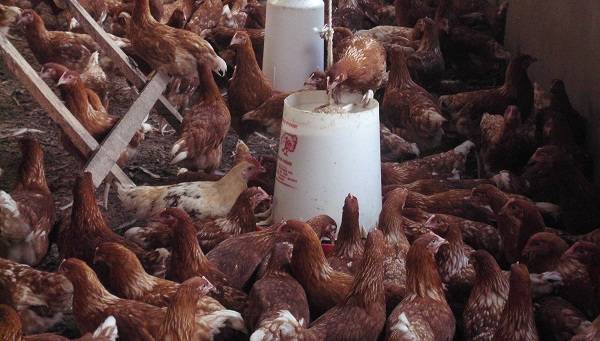It is often said that three out of every four jobs in Kenya, and Africa, are derived from agriculture. As a result, farming is a vital driver of Kenya’s journey to prosperity, with its potential to change the lives of tens of millions of citizens. Its potential has seen several ordinary Kenyans invest in the sector in search of opportunities to generate wealth. For Judith Okango, the gamble has paid off handsomely.
When Mrs Okango decided to venture into rearing chickens, she had little idea the business would pick up so quickly and become her main source of income. She started the business two years ago, on Bidii Farm in Kitale, as a way to earn a little cash on the side with an initial capital of Sh200,000, which went towards buying chicks, constructing chicken coops and purchasing vaccinations.
Okango focused on the business exclusively when she realised poultry farming requires constant supervision to thrive, as the slightest drop in health standards could lead to the death of an entire flock. “One has to be very careful with how they take care of poultry. For instance, I allow only one sweeper and cleaner into the hen house to minimise contamination and maintain the highest possible standards. I also regularly vaccinate the chicken,” she said.
She spends an average Sh10,000 a week to maintain her business, or Sh40,000 a month. But her income more than makes up for this cost. For instance, from her 350 daily eggs collection, Okango is able to come up with at least 2,450 eggs per week which give her at least Sh. 98,000 per month. “I sell my eggs at Sh. 10 each,” she says. She earns another Sh100,000 from the sale of chickens, which she buys and sells or rears and sells from her farm, and an additional Sh20,000 from the sale of manure. While the rearing of chicken is no doubt a lucrative business, she has had her fair share of challenges.
First, the cost of chicken feed is getting more expensive despite Government attempts to lower prices. Further, the quality of chicken feed from some manufacturers has worsened as these traders compromise on quality to achieve maximum sales in a competitive market.
Second, the road network between her farm and some of her customers is rough, making the process of delivering eggs a delicate, and potentially loss-incurring, trip. Third, there is still no permanent solution for the diseases that attack chicken, such as fowl typhoid and Newcastle, which can wipe out a flock within no time. However, these can be effectively managed through regular vaccinations to prevent an outbreak.
Lastly, the cold weather that has persisted in some parts of the region has affected the quality of eggs. However, agricultural extension officers have increased efforts to help farmers maintain the quality and number of eggs produced by their birds, as well as ensure flock health.
Okango relies mainly on word of mouth from the friends and family who are her customers to market her business. This has helped her grow a customer base that includes supermarkets, schools, hospitals and kiosks around Kitale. She hopes to set up a hatchery to meet the demand for chicks and increase the size of her flock.
Her advice to aspiring farmers: “Never give up. It takes perseverance and hard work to be successful in the poultry farming business. I have no regrets about taking it up, and I hope more farmers get into the business. “Also, save as much as possible for expansion, and don’t be afraid of taking small loans to grow your business.”










